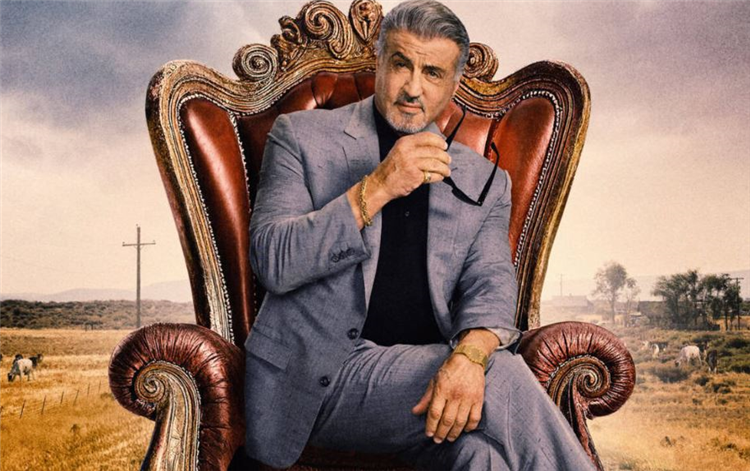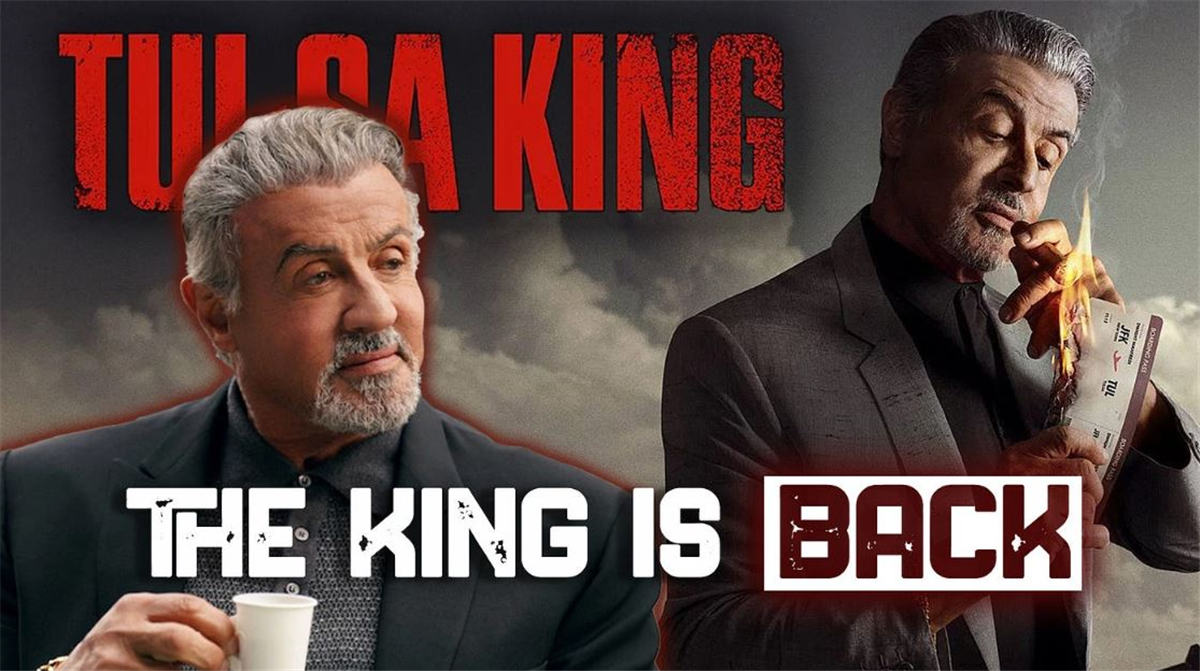Season 1 of Tulsa King, one of Taylor Sheridan’s projects outside the Yellowstone-verse, was a surprise. When the series first premiered, it wasn’t clear what tone could be expected from the gangster-in-a-small-town premise. That tagline could suggest a serious crime drama, in the vein of Sons of Anarchy, as easily as an irony-laden dramedy like Fargo or a straightforward farce. Season 1 introduced us to Dwight Manfredi (Sylvester Stallone) who, coming off serving a 25-year sentence on behalf of the Invernizzi crime family, is sent to establish a mob presence in Tulsa before circumstances lead him to cut ties and start his own makeshift family. It was a refreshing crime series whose focus on building a “chosen family” in Manfredi’s growing criminal organization allowed menacing antagonists as easily as moments of lighter stakes. Ending Season 1 with the opening of Dwight’s casino and his subsequent ATF left considerable drama available for Season 2.
What Is ‘Tulsa King’ Season 2 About?
Tulsa King Season 2 follows Dwight’s efforts to expand his Tulsa footprint while dodging ATF charges, the growing ire of his old mob family, and a few new enemies standing in the way of his growing ambitions. Dwight’s marijuana aspirations run afoul of both local businessman (and hopeful monopolist) Carl Thresher (Neil McDonough) and Kansas City mobster Bill Bevilaqua (Frank Grillo), the latter of whom objects to Dwight’s existence on his turf altogether. In the series’ first three episodes available for review, Dwight fights the law, sets the agenda for his next wave of expansion, and contends with these newly circling enemies.
‘Tulsa King’ Season 2 Introduces New Threats, But Struggles To Find Its Tone

Tulsa King largely retains the same players as the first season, and Stallone is still fun to watch as the charming, ambitious, but not malevolent mobster. One of the series’ most interesting facets, making for a novel viewing experience when weighed against other organized crime fare, is the diverse “chosen family” nature of his growing criminal efforts. Marijuana businessman and connoisseur “Bodhi” Geigerman (Martin Starr), driver Tyson Mitchell (Jay Will), bar owner Mitch Keller (Garrett Hedlund), and others are all atypical players alongside (or pitted against) seasoned mafiosos, a dynamic that provides unexpected and charming interactions and gives Stallone’s Manfredi opportunities to evolve and grow. Thus far, Season 2 retains that charm as the odd characters are tasked with finding new criminal enterprises to bring money to the family. Their distinct skills and experiences lead to some creative criminal endeavors beyond the stereotypical criminal rackets.
The series’ new antagonists seem like they’ll be dedicated obstacles to Manfredi’s goals. McDonough is seasoned at the art of playing fictional antagonists, of course (ask almost any Arrowverse protagonist), and his setup seems appropriately militant and dangerous. Grillo’s Bill Bevilaqua is only briefly introduced in the first three episodes provided for review, but he already seems to be setting up an aggressive take-no-prisoners approach to the character. It’s a perfect contrast to Manfredi’s more laidback, but still unyielding, screen persona: Bevilaqua’s unstoppable force against Manfredi as an immovable object.
The first three episodes of Tulsa King Season 2 focus mostly on setting up these inevitable sources of conflict while contending with the ATF charges that concluded Season 1. This is both a blessing and a curse. It’s a strong and patient setup for a pair of memorable antagonists, but the ATF legal proceedings never provide that riveting of a watch when they’re the subject of the narrative. The series isn’t a legal drama, after all, so there’s little beyond the threat of a guilty verdict to keep audiences invested… and, being honest, does anyone really believe the series will send Manfredi back to jail, given that he spent so long there prior to Season 1?
As a consequence, the beginning of Season 2 feels at times like it’s filling space before the season gets going. The narrative is at its best when building its new antagonists, setting up for Manfredi’s next steps, and paying off old conflicts, and Episode 3 is the strongest of the bunch. That momentum bodes well for the rest of the season. At the same time, there are moments that charm but feel out of place, or like they’re winking too hard at the audience.
Case in point: Episode 2 introduces a real-life Nashville rapper as a singing janitor (with his real-life stage name, no less). It’s not a bad scene in a way, but it has no dramatic function unless he becomes a character later on, and the cuts to smiling, grooving reaction shots feel like the staged concert video they are. That type of scene arguably didn’t work for Ed Sheeran on Game of Thrones, and it doesn’t work here. Of course, that’s the most egregious moment in the season’s beginning thus far, but it’s not the only episode with a tone too whimsical for its own good. As a whole, Tulsa King Season 2 is promising, but one with potential pitfalls.
‘Tulsa King’ Season 2 Needs To Land a Solid Dramatic Throughline

Season 1 of Tulsa King was a breath of fresh air in the mob drama landscape, striking a pleasant and engaging balance between developing genuinely dangerous threats and finding moments of charm and levity. Season 2 is on track to find that balance, possibly with an even more dangerous set of antagonists, though it hasn’t yet cemented that tonal balance in the season’s first half. Stallone’s Manfredi is an engaging mobster with a good heart, surrounded by a cast of characters that bring out his moral best by finding more creative criminal means instead of the standard route of growing brutality.
Some moments wink too much at the audience in an effort to force the breeziness, but Tulsa King is at its best when these moments come directly from the characters. As a whole, it’s a strong start to a season that has all the material it needs for an excellent back half, though it takes some time to congeal. There’s a lot of potential for high drama as Tulsa King Season 2 builds; here’s hoping it sticks the landing again.
Tulsa King Season 2 premieres September 15 on Paramount+.
